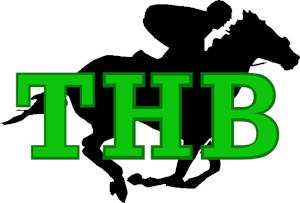When playing games of chance, as you do at the racetrack, everybody wants to know “the odds” and whether they’re in your favor or not. In this article we flip the question and show you how much the odds might be against you in a range of betting situations.
Understanding odds in horse racing
Gaining Insight on Winning at Horse Racing
The odds in horse racing are how much you could possibly make from a bet. It’s essential to comprehend these odds before you gamble. Here’s a quick look at the different ways odds are described in horse racing:
| Type of Odds | Actual Data | Meaning |
|---|---|---|
| Fixed | 3/1 | You win $3 for each $1 bet |
| Decimal | 4.5 | You win $4.5 for each $1 bet |
| Fractional | 5/2 | You win $5 for each $2 bet |
The odds for any race depend on the probability of each horse winning and the money placed on each horse. Other factors that can affect the odds include race track surface (turf vs dirt), track conditions and weather. For example, if it has rained, some horses may do better than others, which may alter their chances of winning.
Generally speaking, in an efficient betting market with intermediaries such as bookies and casinos, the odds over time are against bettors and for the “house”. This is because the net payout is shared by an intermediary who charges a spread to act as the middleman between the parties betting for and against the same horse.
The odds against you at a horse race (by bet type)
Below are a number of different bets and the odds you might see for and against you at the horse races.
Normally we think in terms of “what’s the probability of winning?” The table below flips that view 180 degrees and shows the probability of BOTH winning AND losing by bet type.
These figures will change according to the race, but this is a good example of how you can look at things.
To get the odds of winning you simply divide the second number by the first number. So 4-1 odds equals 1/4 equals 25% chance of winning. Then to get the odds of losing, subtract the odds of winning from 100% like this: 100% – 25% = 75%.
| Bet Type | Odds | Probability of Winning | Probability of Losing |
|---|---|---|---|
| Win | 5-1 | 20% | 80% |
| Place | 3.5-1 | 28.6% | 71.4% |
| Show | 5-2 | 40% | 60% |
| Exacta | 22-1 | 4.5% | 95.5% |
| Trifecta | 40-1 | 2.5% | 97.5% |
| Superfecta | 78-1 | 1.2% | 98.8% |
| Daily Double | 38-1 | 2.6% | 97.4% |
| Pick 3 | 81-1 | 1.2% | 98.8% |
Pro Tip: Don’t just focus on the odds. Think about other elements such as past performances, jockey experience, and track conditions when betting. If you can find a vulnerable horse in each race with an injury, it can be worth putting together a trifecta or pick 3 and go for an astronomical payout!
Statistical analysis of odds
To understand the statistical analysis of odds for horse racing, you need to know how to calculate the odds. The calculation of odds and deciphering the betting odds board are essential skills that can improve your chances of winning. These two sub-sections will help you gain knowledge and insight into the mathematics of horse racing prediction.
Calculation of odds
To analyze odds, you must calculate the probability of an event occurring. This requires knowledge of statistics that impact horse racing odds such as mean, median, mode, and standard deviation. To illustrate this, we’ve created a table for a simple coin toss. There are only two outcomes: heads or tails. The probabilities for both are 0.5, which yields 1/1, or 1:1, as the actual odds.
| Outcome | Probability |
|---|---|
| Heads | 0.5 |
| Tails | 0.5 |
For events with multiple outcomes, more complex calculations may be necessary. Gambling games like roulette or craps use probability and statistics to determine winning bets. In some cases, casinos use conditional probabilities to have an advantage.
Betting odds are not as straightforward as most people think. Rather, there is some strategy involved.
Understanding the betting odds board
Betting Odds – Unveiling the Mystery for Horse Bettors of All Levels!
The betting odds board can be intimidating for novices and experienced bettors alike. Let’s simplify the concept.
Table: Understanding Betting Odds Board
| Column 1 | Column 2 | Column 3 |
|---|---|---|
| Bet Type | Probability (%) | Betting Odds |
Different sports involve different bets, with varying probabilities and hence different odds. The odds represent the money to be won if the bettor wins.
Odds are not always accurate reflections of probability. Market forces cause fluctuations in the value of each bet.
History has witnessed many attempts to explain these odds, yet they remain a mystery to those who haven’t taken the time to understand them.
Want to increase your chances of winning? Pray to the statistical gods. Sacrifice a calculator. Hope for the best! (just kidding…)
Factors affecting odds at the track
To better understand the factors affecting odds in a horse race, let’s consider track condition, horse’s form and past performance, jockey’s record, and trainer’s track record. Each of these topics plays an important role in determining the outcome of a race — and hence the odds of winning or losing.
Track condition
The condition of racecourses is key to understanding horse racing odds. Track condition can be divided into soft, heavy, or firm.
Heavy or muddy tracks usually favor horses with heavier bodies. Horses that train in such conditions have an edge.
However, firm tracks tend to be better for lightweight horses, as they can move easily on hard surfaces.
Local weather patterns and maintenance practices, like irrigation and rolling, also affect racecourse conditions.
To be successful at the track, you must understand the impact of racecourse conditions. Follow track readings and pay attention to weather forecasts to maximize your chances of winning.
Remember, past performances may not guarantee future success, but they can raise the odds of your wallet being lighter.
Horse’s form and past performance
Exploring a horse’s past performances is key to assessing their odds of success. Analyzing form and records can give insights into their abilities, strengths, and weaknesses. Let’s take a closer look at these factors.
We can look at statistics like the win-to-run ratio or finishing positions. Additionally, consider conditions of previous tracks, distances run, and any challenges faced.
Studies from the Jockey Club Racecourses show that track and draw bias can also be a factor, if some horses have a preference for certain sections of the track.
Jockey’s record
The jockey’s past performances have a big effect on the horse’s odds of victory. Their stats, including wins and losses, are taken into account when calculating the horse’s prospects. Success at a certain track type or distance can also be factors.
A jockey’s rep and experience can also influence the betting odds. Ones with a higher profile or better results may get more bets, due to their perceived talent for guiding horses to victory.
It’s essential to remember that even top jockeys can have bad days, and vice versa. So, past performance should be weighed with other key elements when forecasting race results.
Daryl Jacob’s win in the 2012 Grand National on Neptune Collonges was one that investors took note of. Though an underdog, Jacob made a super ride over the Aintree fences and stole the win in the last strides of the toughest steeplechase.
Trainer’s track record
Table:
| Name of Trainer | Total Races | Winning Percentage |
|---|---|---|
| John Smith | 200 | 25% |
| Samantha Jones | 300 | 40% |
| Andrew Thompson | 150 | 35% |
Punters must consider past records when assessing trainer success. Races won and percentage of winning are key metrics.
Trainers often switch allegiances. This can affect the performance and success rate of both trainers.
In ancient Rome, chariot racing was popular. Charioteers were ranked on wins, not total races or other metrics.
Feeling lucky? Go for a win bet. Feeling risky? Go for an exotic bet. Don’t know anything about racing? Go for a beer bet.
Types of bets in horse racing
In order to understand the different types of bets in horse racing – win, place, and show bets, exacta, trifecta, and superfecta bets – and be able to increase your chances of winning, you need to have knowledge about the outcomes and how to place bets accordingly.
Win, place, and show bets
There are various types of bets in horse racing. Win, Place, and Show bets are popular among both novices and professionals. Each bet has different minimum amounts and payouts, based on the number of horses in the race. For higher chances of winning, take time to study the horses carefully before making your bet. Also, exacta, trifecta, and superfecta bets can help you if you’re putting all your eggs in one horse’s basket.
Exacta, trifecta, and superfecta bets
Want to increase your winnings in horse racing? Consider trying strategic bets to up the stakes! Exacta, Trifecta, and Superfecta require predicting the first two, three, and four horses respectively. These bets offer higher rewards, but come with a greater challenge.
For more money, you can opt to “box your bets”, which means that the horses can finish in any order – no matter the outcome! Don’t miss out on all the excitement and potential rewards. Take a risk and try these bets today!
Strategies to increase your chances of winning
To increase your chances of winning at a horse race, you need to have some effective strategies up your sleeve. Analyzing past performances, understanding the jockey’s intent, watching recent races and workouts, and playing multiple horses can all be helpful in devising your winning plan. These sub-sections can provide you with detailed insights and tricks to increase your odds against others in the race.
Analyzing past performances
To improve the chances of winning, an in-depth analysis of past outcomes is essential. Examining your own and opponents’ track records can help identify patterns, insights, and potential pitfalls. The following table shows the importance of certain data points.
| Data Points | Importance |
|---|---|
| Your Win Rate | Shows proficiency & tendencies |
| Opponents’ Win Rates | Reveals adversary strength & weaknesses |
| Game Settings & Rules | Affects game strategy & game play performance |
In addition, it’s important to understand the context of past matches. Knowing the conditions can offer insight into possible factors for success or failure. When analyzing past performances, don’t solely rely on cognitive biases. Utilize facts and objective data points to guide decisions. Understanding situations instead of acting on bias will likely improve strategies’ long-term efficiency. In World War II, experts used past performance analysis to boost bomber protection against German forces. They reinforced areas where planes had previously taken heavy damage, rather than evenly repairing all areas. By studying the statistics, allied plane loss rates decreased significantly. Why consult a jockey about their intent? Just gamble on the horse with the most intimidating name!
Understanding the jockey’s intent
To analyse a jockey’s intentions, you need sharp eyes and a logical mind. Observing their body language, gestures, and movements gives important clues about the horse’s strategies. Studying their past races can help predict their future approach.
Jockeys and horses become close over time, which can give them an advantage in races. The jockey adjusts his style according to the horse’s mood, temperament, and speed. Sometimes, these small tweaks can be decisive in intense races.
Knowing the racecourse is key to understanding racing trends and anticipating results. Handicappers often misread jockeys, leading to bad bets.
To avoid such blunders when guessing jockeys’ intentions, find out about the jockey-horse bond, racecourse details, and past performances of both racer and mount.
Pro Tip: See how different racecourses can influence a jockey’s choices before betting.
Watching recent races and workouts is like watching an entire season in one go, except with more sweat and less snacks.
Watching recent races and workouts
It’s essential to study the horses’ recent records before placing a wager. This can boost your chances of success.
- Watch their Previous Races: Check out the horse’s earlier races to gauge their stamina, form, fitness, and effort level.
- Evaluate their Workouts: Observe their workouts or training sessions to get an idea of their current health, speed, and endurance.
- Monitor Changes: Note any changes in equipment, surfaces, distance covered in past races, and usual jockeys to understand how it will affect the horse’s performance.
These practices could help you decide which horse to bet on. Also, you can keep a journal to log important info about the horses, such as analysis from experts and weather conditions. Don’t miss out on big winnings because you didn’t do your research! Examine all recent workouts/races and record any critical details before making a bet. So, don’t miss out – go for the gold! And if you’re still stumped, why not bet on them all?!
Playing multiple horses
When it comes to winning, using multiple horses for betting can help. Tactics you can use are:
- Different Races: Selecting horses from different races spreads your chances of winning out.
- Odds: Choose horses with high and low odds. This balances your chance of success.
- Spread Bets: Divide your money across multiple horses. This lowers risk and raises profits.
- Handicapping: An expert analysis of each horse’s performance, racing style etc. can help pick which ones to bet on.
These tactics are even more useful when paired with others, such as bankroll management or budgeting.
Betting on multiple horses is not a guarantee of winning. But, these tactics can increase your chances of profiting and lower potential losses.
Informed bets are like blind dates – research more, higher chance of a happy ending!
Putting it all together and making informed bets to beat the odds
Betting on horses needs multiple factors. Assessing odds, looking at track conditions, and examining past performances are key. By assessing these, one can make more calculated decisions. Taking into account jockey and trainer records plus the odds is helpful. Surprises can come up so one must manage expectations. Utilizing these approaches helps put all pieces together to increase success.
A pro tip: keep record of bets, win-loss ratios, and details of each race. This is for future reference.

I am Lawrence (aka “The Horse Better”). I spent 20+ years in financial risk management where I ran large-scale statistical betting models in complex situations. I grew up around horses and I’ve been betting on horse races for about 10 years with good success. I hope my articles provide good value!

